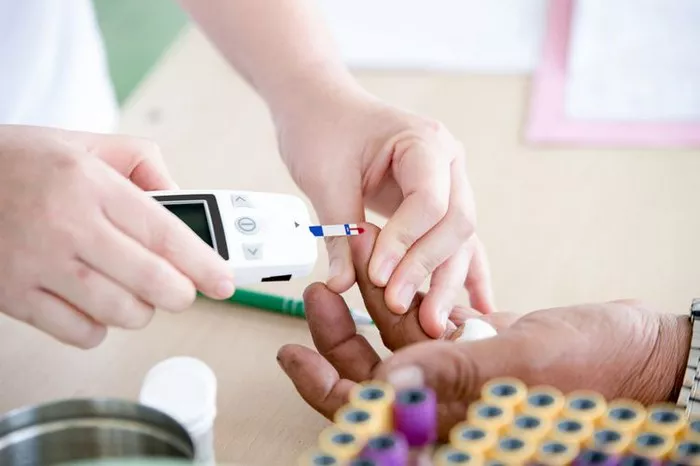Hyperglycemia, or elevated blood glucose levels, is a common concern for individuals with diabetes. It can result from various factors, including insufficient insulin production, insulin resistance, or lifestyle choices. Persistent hyperglycemia can lead to serious complications, including cardiovascular disease, neuropathy, and nephropathy. This comprehensive guide will explore effective strategies for controlling hyperglycemia, emphasizing a multifaceted approach that includes lifestyle modifications, medication management, and monitoring techniques.
Understanding Hyperglycemia
Hyperglycemia occurs when the concentration of glucose in the blood exceeds normal levels. For individuals with diabetes, maintaining blood glucose within a target range is crucial for managing the condition and preventing complications. Hyperglycemia can be acute or chronic and is often associated with both type 1 and type 2 diabetes.
1. Causes of Hyperglycemia
Several factors can contribute to elevated blood glucose levels, including:
Insufficient Insulin Production: In type 1 diabetes, the pancreas does not produce enough insulin. In type 2 diabetes, the body either does not produce enough insulin or does not use it effectively.
Insulin Resistance: Cells become less responsive to insulin, leading to elevated blood glucose levels.
Dietary Choices: High carbohydrate intake, particularly from refined sugars and processed foods, can lead to spikes in blood glucose.
Physical Inactivity: Lack of exercise can contribute to poor glucose control.
Stress and Illness: Stress and illness can increase blood glucose levels through the release of stress hormones and changes in metabolism.
Medication Non-Compliance: Missing doses or not taking medications as prescribed can lead to poor glucose control.
Lifestyle Modifications for Controlling Hyperglycemia
Lifestyle changes play a critical role in managing hyperglycemia. Incorporating healthy habits can significantly improve blood glucose control and overall well-being.
1. Dietary Management
Dietary choices are fundamental in managing blood glucose levels. Key strategies include:
Carbohydrate Counting: Monitoring carbohydrate intake helps manage blood glucose levels. Use tools like food diaries or apps to track carbohydrates consumed and adjust insulin or medication accordingly.
Choosing Low Glycemic Index Foods: Foods with a low glycemic index (GI) are absorbed more slowly, leading to more stable blood glucose levels. Examples include whole grains, legumes, and non-starchy vegetables.
Portion Control: Eating balanced meals with appropriate portion sizes helps prevent excessive calorie and carbohydrate intake.
Regular Meals: Eating at regular intervals prevents extreme fluctuations in blood glucose levels. Avoid skipping meals or snacks, which can lead to hypoglycemia or hyperglycemia.
Hydration: Staying hydrated supports overall health and helps maintain proper kidney function, which is essential for glucose regulation.
2. Physical Activity
Regular exercise improves insulin sensitivity and helps regulate blood glucose levels. Recommended practices include:
Aerobic Exercise: Engage in at least 150 minutes of moderate-intensity aerobic exercise per week, such as brisk walking, cycling, or swimming. Aerobic exercise helps improve cardiovascular health and glucose metabolism.
Resistance Training: Incorporate muscle-strengthening activities at least two days per week. Resistance training helps increase muscle mass, which enhances glucose uptake.
Consistency: Establish a regular exercise routine and integrate physical activity into daily life. Activities such as walking after meals can help manage postprandial blood glucose levels.
3. Weight Management
Maintaining a healthy weight is crucial for managing hyperglycemia. Strategies include:
Balanced Diet: Follow a diet that supports weight management by focusing on nutrient-dense, low-calorie foods.
Regular Exercise: Combine aerobic and resistance exercises to achieve and maintain a healthy weight.
Behavioral Changes: Set realistic weight loss goals and seek support from healthcare professionals, nutritionists, or weight loss programs if needed.
Medication Management for Hyperglycemia
For many individuals with diabetes, medications are necessary to control hyperglycemia. Recent advancements in diabetes medication provide various options to tailor treatment to individual needs.
1. Oral Medications
Several classes of oral medications are used to manage blood glucose levels:
Metformin: Often the first-line treatment for type 2 diabetes, metformin helps improve insulin sensitivity and reduce glucose production in the liver.
Sulfonylureas: These medications, such as glipizide and glyburide, stimulate insulin release from the pancreas.
DPP-4 Inhibitors: Drugs like sitagliptin and saxagliptin increase incretin levels, which help regulate insulin and glucose levels.
SGLT2 Inhibitors: Medications such as empagliflozin and canagliflozin promote glucose excretion through the urine and have additional benefits for cardiovascular health.
2. Injectable Medications
For individuals who require insulin or other injectable treatments, options include:
Insulin Therapy: Insulin is essential for managing type 1 diabetes and may be required for type 2 diabetes when oral medications are insufficient. Various types of insulin include rapid-acting, long-acting, and intermediate-acting insulins.
GLP-1 Receptor Agonists: Medications like liraglutide and semaglutide mimic incretin hormones to enhance insulin secretion and reduce appetite.
3. Personalized Treatment Plans
Selecting the appropriate medication or combination of medications depends on individual factors such as:
Type of Diabetes: Different strategies are required for type 1 versus type 2 diabetes.
Blood Glucose Goals: Personalized targets for HbA1c and blood glucose levels should be set based on individual health conditions.
Comorbidities: Consideration of other health conditions, such as cardiovascular disease or kidney dysfunction.
Lifestyle Factors: Tailoring treatment to fit lifestyle, dietary habits, and physical activity levels.
Monitoring Blood Glucose Levels
Regular monitoring of blood glucose levels is essential for effective management of hyperglycemia. Techniques include:
1. Self-Monitoring
Home Glucose Meters: Regular use of a home glucose meter allows individuals to track blood glucose levels and make necessary adjustments to diet, exercise, and medications.
Testing Frequency: Monitor blood glucose levels as recommended by healthcare providers, which may vary based on treatment plans and individual needs.
2. Continuous Glucose Monitoring (CGM)
CGM Systems: These devices provide real-time glucose readings and trends, offering valuable insights for managing hyperglycemia. CGM can be especially useful for individuals with frequent fluctuations in blood glucose levels or those on intensive insulin regimens.
3. Hemoglobin A1c Testing
Regular HbA1c Tests: HbA1c tests measure average blood glucose levels over the past 2-3 months. Regular testing helps assess long-term glucose control and adjust treatment plans as needed.
Addressing Acute Hyperglycemia
Acute hyperglycemia, or high blood glucose levels occurring suddenly, requires prompt management to prevent complications:
1. Identifying Symptoms
Symptoms of Hyperglycemia: Common symptoms include excessive thirst, frequent urination, fatigue, and blurred vision. Early recognition of these symptoms helps in timely intervention.
2. Immediate Actions
Medication Adjustment: Consult with healthcare providers to adjust medication doses or regimens if hyperglycemia persists.
Hydration: Increase fluid intake to help flush excess glucose from the body.
Monitoring: Frequent blood glucose testing to track changes and assess the effectiveness of interventions.
3. Preventing Recurrent Episodes
Lifestyle Adjustments: Implement dietary and exercise changes to prevent future episodes of hyperglycemia.
Medication Adherence: Ensure consistent use of prescribed medications and follow-up with healthcare providers.
Long-Term Management and Prevention
Preventing chronic hyperglycemia and its complications involves ongoing management and lifestyle changes:
1. Regular Check-Ups
Routine Visits: Regular visits to healthcare providers for monitoring and management of diabetes are essential.
Screening for Complications: Regular screening for diabetes-related complications, including cardiovascular disease, retinopathy, nephropathy, and neuropathy.
2. Education and Support
Diabetes Self-Management Education (DSME): Participate in DSME programs to enhance knowledge, skills, and self-management behaviors.
Support Systems: Engage with support groups, counseling services, or diabetes educators to maintain motivation and address challenges.
3. Adapting to Changes
Lifestyle Changes: Adjust lifestyle and treatment plans as needed based on changes in health status, lifestyle, or treatment goals.
Ongoing Learning: Stay informed about new research, treatment options, and strategies for managing diabetes.
See also: How Hyperglycemia Damages Blood Vessels
Conclusion
Controlling hyperglycemia requires a comprehensive approach that includes lifestyle modifications, medication management, regular monitoring, and preventive measures. By adopting healthy habits, adhering to prescribed treatments, and actively participating in diabetes management, individuals can achieve better blood glucose control and reduce the risk of complications.
For personalized advice and support, individuals should consult with healthcare providers, including endocrinologists, certified diabetes educators, and dietitians. A collaborative approach to managing hyperglycemia can lead to improved health outcomes and a higher quality of life for those living with diabetes.
By understanding and implementing these strategies, individuals with diabetes can effectively manage their condition, prevent hyperglycemia, and enhance their overall well-being. Regular follow-ups and proactive management are key to achieving long-term success in diabetes care.
Related topics:
What Type of Diabetes is Preventable

























